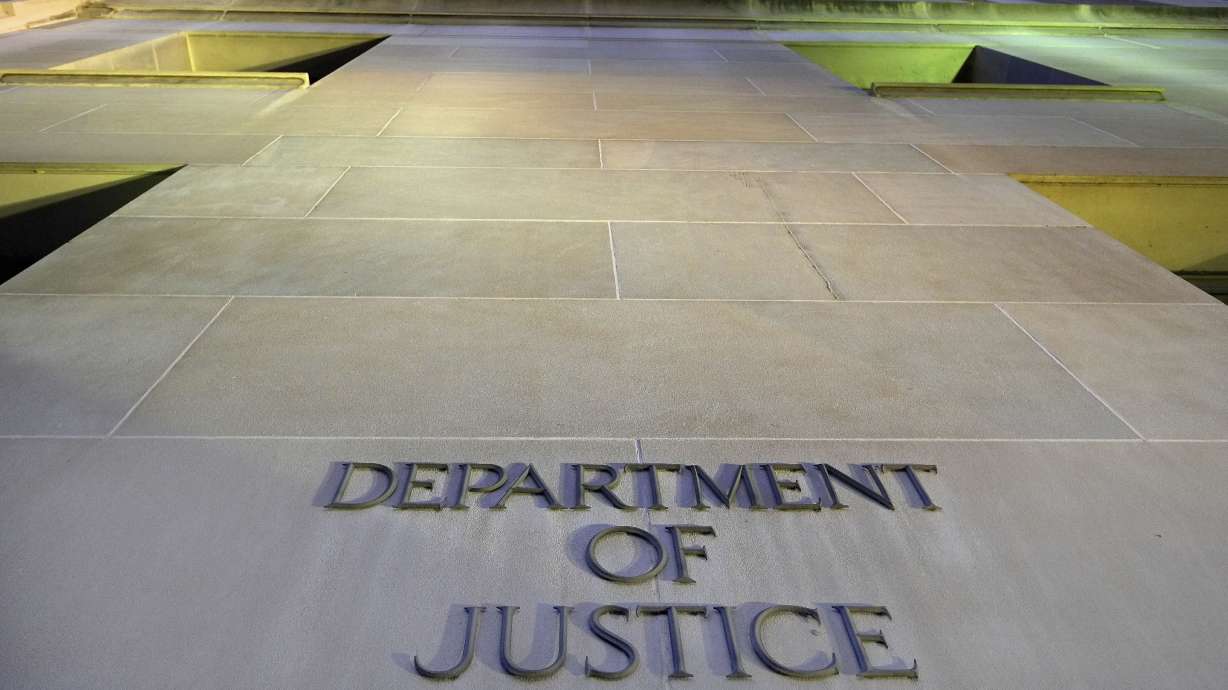Estimated read time: 5-6 minutes
This archived news story is available only for your personal, non-commercial use. Information in the story may be outdated or superseded by additional information. Reading or replaying the story in its archived form does not constitute a republication of the story.
WASHINGTON (AP) — Civil rights groups on Wednesday accused the Trump administration of "changing course on a key civil rights issue" after reports that it was launching a special project to investigate whether college and university admissions programs discriminate against students based on race.
The New York Times reported late Tuesday that a recent internal Justice Department job posting says it is seeking current employees interested in "investigations and possible litigation related to intentional race-based discrimination in college and university admissions."
Advocacy groups believe the language targets affirmative action programs that allow schools to consider race in pursuit of diversity on campus.
A Justice official told The Associated Press on Wednesday that the notice was a "personnel posting" and not a new policy or program. A spokesman provided no details.
The Education Department declined to comment. White House spokeswoman Sarah Huckabee Sanders said she doesn't know whether President Donald Trump believes that white college applicants are victims of discrimination, adding that the Justice Department "will always review credible allegations of discrimination on the basis of any race."
Such a program would mark the Justice Department's latest effort under Attorney General Jeff Sessions to reshuffle the priorities of the Civil Rights Division, which is not unusual when administrations change. The Trump administration has worked quickly to shift away from its Democratic predecessors in the areas of gay rights, voting rights and investigations of troubled police departments.
Anurima Bhargava, who was head of the Civil Rights Division's Educational Opportunities Section during the Obama administration, said any move to investigate affirmative action policies would be a "fear and intimidation tactic" because the Supreme Court has upheld such admissions programs.
"My very strong sense is that it's nothing other than politics," she said.
Rep. Bobby Scott, a Virginia Democrat, said he was "deeply concerned" by the reports. "What is already clear is the Trump administration's public record of attacking civil rights protections on multiple fronts."
But Roger Clegg, a civil rights official during the Reagan era who now runs the conservative Center for Equal Opportunity, said it was an encouraging sign.
"Anytime a university discriminates on the basis of race it ought to creep people out, and it doesn't make any difference who's being discriminated against on the basis of race," Clegg said. "I'm delighted that the Trump administration is doing this."
Clegg said conservatives were displeased with what they saw as the Obama administration's support for race-based admissions by universities.
The Supreme Court last year upheld a University of Texas program that considers race, among other factors, in admissions, offering a narrow victory for affirmative action. A white Texan who was denied admission to the university sued, but the high court said the Texas plan complied with earlier court rulings that let colleges consider race in an effort to bolster diversity.
The Justice Department's move comes as groups have sued other universities over the practice. Most notably, an alliance of Asian American groups has sued Harvard University, saying that school and other Ivy League institutions are using racial quotas to admit students other than high-scoring Asians.
At America's elite private colleges, many of which have drawn criticism over race-conscious admission policies, incoming classes have become increasingly diverse in recent years.
Minority students made up more than 40 percent of the freshman classes at nearly all Ivy League schools in 2015, according to the most recent federal data, while only two topped that mark in 2010. At Columbia University, about half of the incoming class in 2015 was made up of minority students, the data show.
Similarly, top public universities have also become more diverse. At some University of California campuses, for example, nonwhite students made up more than 60 percent of the incoming class in 2015.
Those changes partly reflect demographic shifts across the country. According to U.S. Census data, close to half of Americans under age 18 are racial minorities, even though 62 percent of the total population is white.
Matthew Gaertner, an education expert at SRI International, a nonprofit research institute, said that of the 3,000 four-year nonprofit colleges and universities in America, 27 percent consider applicants' race and ethnicity during the admission process. But Gaertner cautioned that doesn't simply mean giving certain applicants extra points based on their race. Instead, race is seen as just one of the factors that help admissions officers determine which students would be aligned with the school's mission and priorities.
"You cannot place these students into categories and give them boosts based on those categories," said Gaertner. "However, you can go through an individualized assessment of each applicant via interpretation of their race among many factors, such as whether they play the tuba, their athletic gifts, their interests."
Former Education Secretary John King condemned the reported plan, saying diversity benefits schools and communities.
"I am deeply disheartened that the administration appears to be taking a hard line against efforts to increase campus diversity rather than focusing on addressing the persistent opportunity gaps facing students of color and low-income students," King, who served under Obama, said in a statement.
Columbia University President Lee Bollinger said the effectiveness of race-conscious admission policies in providing top-notch higher education and fostering diversity on campuses has been demonstrated over decades, while its legality and constitutionality have been maintained by the courts.
"American colleges and universities are on the right path, and for our country, given its past and hopefully our future, this is the right course," he said.
___
Collin Binkley contributed to this story from Boston.
Copyright © The Associated Press. All rights reserved. This material may not be published, broadcast, rewritten or redistributed.









